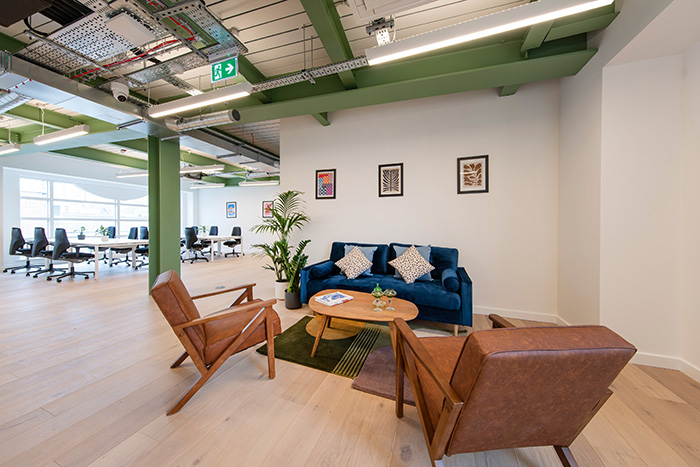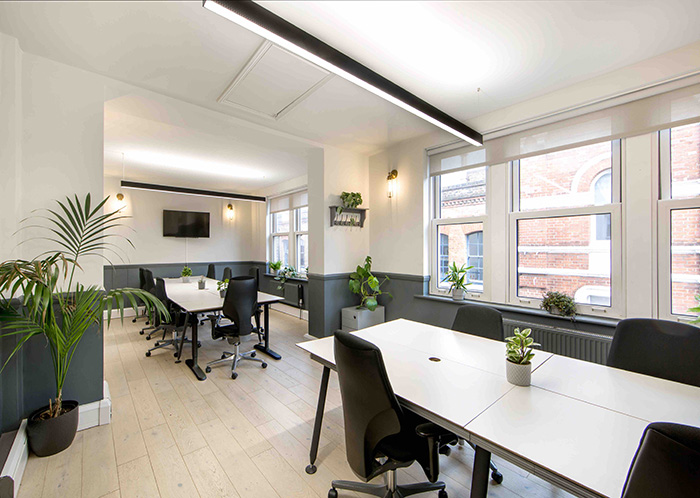Great Office Design Must Understand The Role Of Fresh Air And Natural Light
 By Yaron Rosenblum, Co-founder & CEO of Canvas Offices.
By Yaron Rosenblum, Co-founder & CEO of Canvas Offices.
At the outbreak of Covid-19, who could possibly have predicted the impact it would have on the world of work? Ever since thousands of businesses were forced to shift to remote working, working from home has become an intrinsic part of many organisations’ working models. Now though, employers are eager to get workers back into a more traditional office setting, aiming to replicate the sense of camaraderie and collaboration that was commonplace prior to the pandemic.
However, as many employees have grown use to working remotely, being in stylish and well-equipped offices that feel like a second home has become more important than ever to them.
This has led to the birth of ‘resimercial’ office design – whereby aspects of the home, such as fresh air and natural light – are brought into the workplace to create an environment in which workers feel happy, comfortable, and productive. Not only are these features of resimercial design helping business leaders to incentivise their staff to return to the office, but are also helping to improve mental health and wellbeing at work.
Let There Be Light!

There is a simple and important explanation why, according to a survey published by the Harvard Business Review, access to natural light is the primary feature workers want from their office experience.
As humans, we now spend roughly 90 percent of our time indoors, and it is undeniable that our lack of exposure to natural light is having a negative impact on our health.
In 2020, a team of US researchers found that workers sleep more hours each night when exposed to more sunlight during the day. The study involved separate experiments carried out in two near identical office environments, with the only significant difference being the level of natural lighting. While one of the offices has traditional blinds that obscure sunlight, the other had windows treated with electrochromic glazing technology, which allows more sunlight to pass through. Typical office workers were asked to work in both offices for one week. The researchers discovered the workers slept for longer periods of time when they worked in the office with more sunlight, and that they also scored higher in cognitive tests.
It is clear, therefore, that the presence of natural lighting is beneficial to workers’ sleep patterns, and that better rested workers are more alert and focused in their jobs. As such, bosses should consider what they can do to improve access to natural light in their office. Positioning desks and key areas close to windows, or adding mirrors, for example, can be effective, low-cost ways to give workers more exposure to the outside while simultaneously enhancing workplace satisfaction and productivity.
Keeping Things Fresh

Fresh air, meanwhile, has also been shown to have a link with better performance among workers who are happier and healthier for having access to it.
According to research by Joseph G. Allen, director of healthy building programmes at Harvard T.H. Chan School of Public Health, air quality in offices has a direct correlation to employee performance, with better ventilation aiding a worker’s ability to process information, make strategic decisions, and respond to crises.
In a study conducted by Allen on the link between better air and performance, higher test scores were recorded across nine cognitive function domains when workers had been exposed to increased rates of ventilation, lower levels of chemicals, and lower carbon dioxide. The biggest improvements in performance were in areas relating to how workers used information to make strategic decisions, as well as how they plan, stay prepared, and strategise in moments of crisis.
All of these skills are, of course, essential for creating a productive office environment, so business leaders need to be considering what can be done to improve the air quality in their offices. In fact, according to a Harvard University study, companies can expect to see an approximately $6,500 per employee, per year increase in productivity as a direct result better air quality.
Don’t Lose Sight Of The Fundamentals!

By focusing on designs that understand the importance of natural light and fresh air, businesses will benefit from an office that puts the needs and wants of workers first. After all, when it comes down to it, we are human beings first, and workers second. As humans, we need the conditions in place that allow us to prosper in our jobs, and without them, we can’t be expected to perform to our fullest potential.
Therefore, bosses owe it not just to their workers, but to themselves also, to make theirs a bright, fresh, and happy environment to work in.
Click the article to enlarge it.



























































